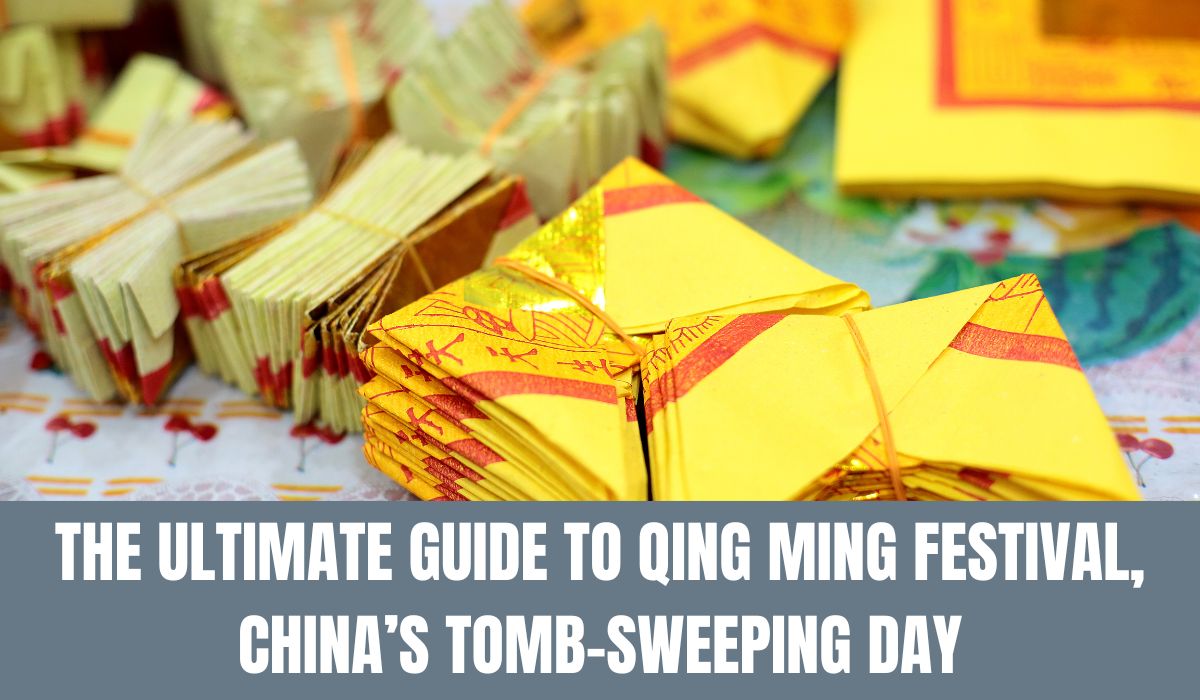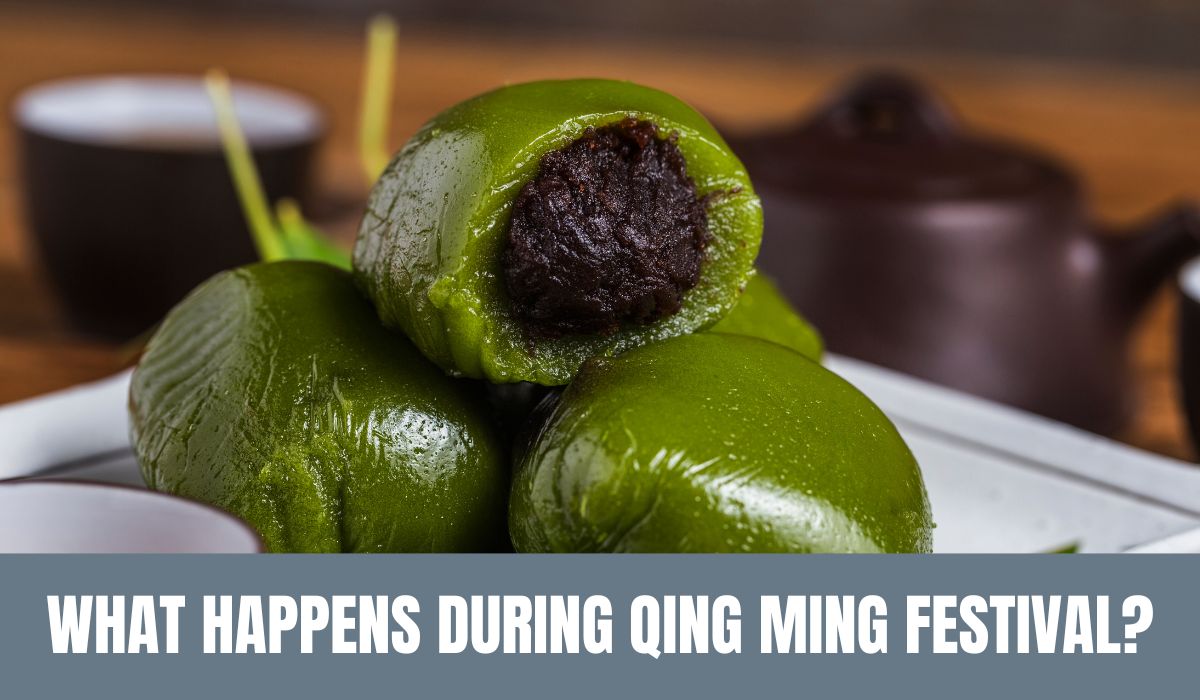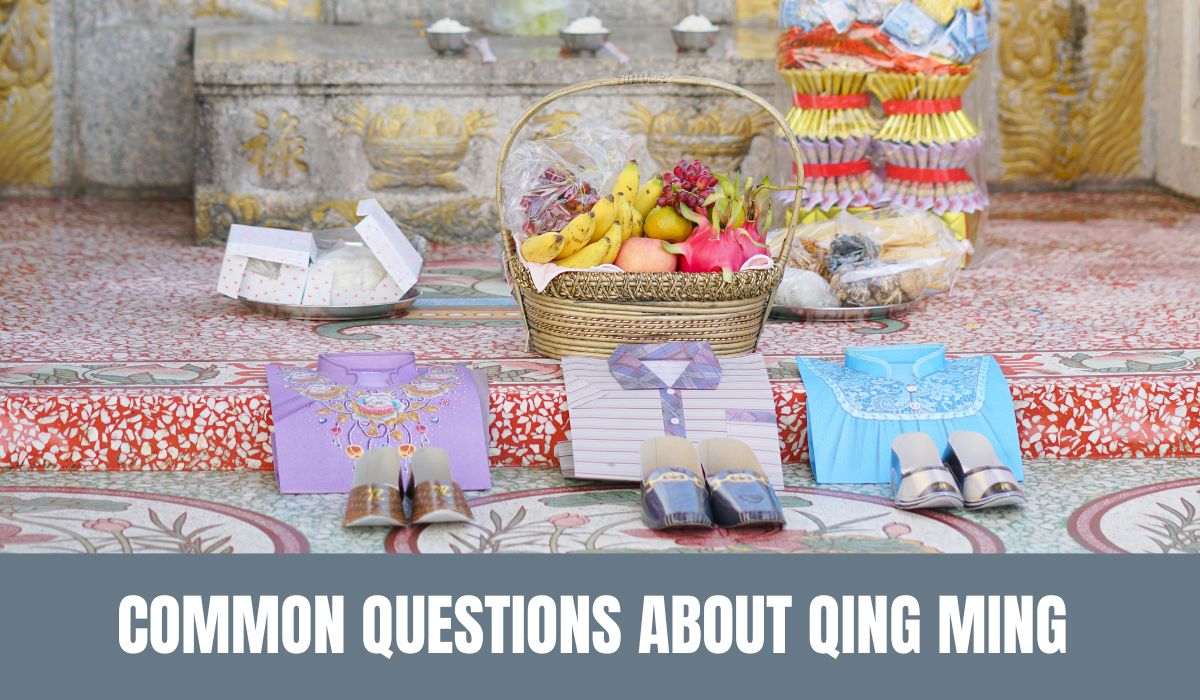The Ultimate Guide To Qing Ming Festival, China’s Tomb-Sweeping Day

07
Apr


Every year, millions of Chinese families around the world observe Qing Ming Festival (清明节), also known as Tomb-Sweeping Day. This special day is dedicated to honoring ancestors, cleaning gravesites, and spending time with family. While Qing Ming is deeply rooted in Chinese traditions, it is also widely practiced by the Chinese community in Malaysia.
Many families take this time not only to pay respects to their ancestors but also to embrace the beauty of spring. In this guide, we’ll explore the history, customs, taboos, and modern adaptations of Qing Ming, including how Malaysian Chinese families celebrate this important festival.
The name “Tomb-Sweeping Day” comes from the most important tradition of Qing Ming: cleaning and maintaining ancestral gravesites. Families visit cemeteries to remove weeds, clean tombstones, and make offerings such as food, incense, and joss paper. This act symbolizes respect and remembrance, ensuring that ancestors’ spirits are honored and cared for.
While Qing Ming is a time for cleaning tombs and paying respects to ancestors, another important festival that focuses on honoring the spirits is the Hungry Ghost Festival, which takes place later in the year. Both festivals involve offerings and prayers, but with distinct cultural practices and beliefs
In Malaysia, this tradition is deeply respected. Many families travel long distances to cemeteries or columbariums to perform these rites, especially since some burial grounds are located far from urban areas.
Qing Ming falls on April 4th or 5th each year, based on the Chinese solar calendar. Although the official festival lasts for one day, the observances often extend two weeks before and after the official date.
In Malaysia, many families take advantage of weekends to perform the rituals, since traveling to burial sites can take time. Cemeteries such as Nirvana Memorial Park in Semenyih or Klang’s Chinese cemeteries become busy during this period, as thousands of families gather to honor their ancestors.

The most significant activity of Qing Ming is visiting ancestral tombs. Families bring cleaning tools to sweep away dirt, clear weeds, and tidy up the tombstone inscriptions. This practice reflects the Chinese virtue of filial piety (孝道 – xiào dào), showing respect for ancestors.
Once the tomb is cleaned, families present food offerings such as roast pork, dumplings, tea, and rice wine. A popular food item is Qing Tuan (青团), a green glutinous rice ball filled with sweet bean paste, traditionally eaten during Qing Ming.
While Qing Tuan is a delicious treat enjoyed during the Qing Ming Festival, it shares a cultural connection with another iconic rice ball — Tangyuan. Often served during the Winter Solstice or the Lantern Festival, Tangyuan holds special meaning in Chinese culture as a symbol of family unity and togetherness.
In Malaysia, people also burn joss paper (spirit money) and other paper items, such as houses, clothes, cars, and even luxury goods like smartphones. It is believed that burning these offerings provides comfort and prosperity to ancestors in the afterlife.
In Malaysia, people also burn joss paper (spirit money) and other paper items, such as houses, clothes, cars, and even luxury goods like smartphones. It is believed that burning these offerings provides comfort and prosperity to ancestors in the afterlife.
Qing Ming is not just about remembrance—it is also a time for family reunions. After visiting the tombs, families often gather for a meal either at home or at a nearby restaurant. This strengthens family bonds and ensures the younger generations understand the importance of the festival.
While Qing Ming is a time of remembrance, there are certain taboos to avoid:
Red is traditionally associated with celebrations and joy, which makes it inappropriate for Qing Ming. Instead, people wear black, white, or grey to show respect.
Cemeteries are considered sacred and solemn places. Laughing, running around, or making unnecessary noise is seen as disrespectful to the spirits.
Walking over tombs is considered highly disrespectful and bad luck. Always be mindful of where you step when visiting cemeteries.
Because Qing Ming is a time of remembrance, it is considered bad luck to host weddings, housewarming parties, or major celebrations during this period.

Yes! Many non-Chinese individuals, especially those who marry into Chinese families, take part in Qing Ming traditions.
It is solemn yet meaningful. While there is a sense of mourning, Qing Ming is also a time for celebrating family and remembering loved ones with gratitude.
Yes! Many families, especially in Malaysia, visit tombs two weeks before or after Qing Ming to avoid crowds.
Families can visit columbariums or set up ancestral altars at home to offer prayers and incense.
Qing Ming Festival is more than just a day of remembrance—it is a symbol of family, respect, and cultural heritage. Whether through traditional tomb-sweeping, family meals, or eco-friendly adaptations, Qing Ming remains an essential part of Chinese culture.
For Malaysian Chinese, this festival is not just about paying respects to ancestors but also a time to reflect on family values and pass down traditions to future generations. By continuing to observe Qing Ming, we ensure that our ancestors’ legacies live on.
White On White Headquarter
No 3, Persiaran Greentown 8, Pusat Perdagangan Greentown, 30350 Ipoh, Perak.
@ 2025 WHITE ON WHITE
Operated by WHITE ON WHITE (M) SDN. BHD. 202101001921 (1402219-A)
[mailerlite_form form_id=2]